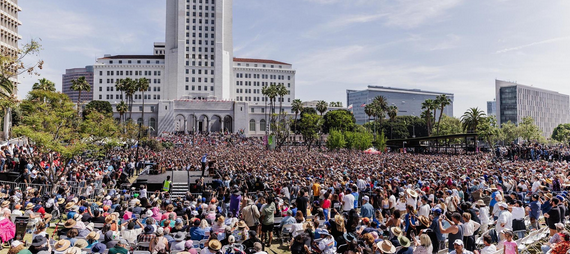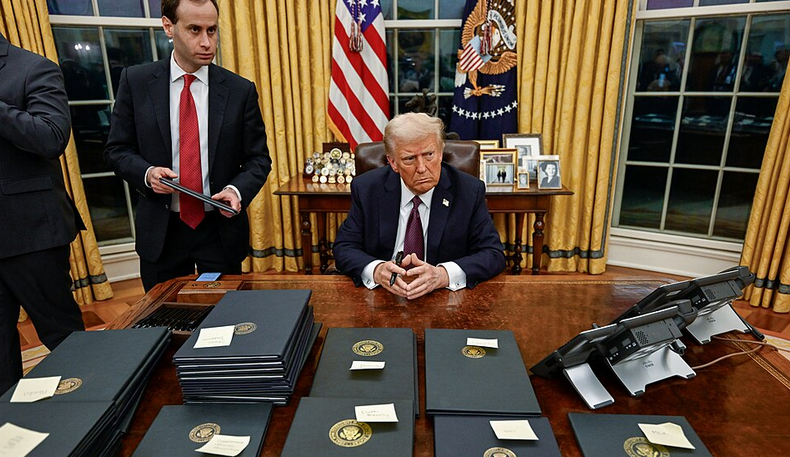By Robert Kimball Shinkoskey
Photos: YouTube Screenshots
Since October 7th, writers in Israel and America have been trying to understand a myriad of issues surrounding the war in Gaza. These include the history of Jewish victimization and antisemitism, the true meaning of Hanukkah and other Jewish holidays, Israeli-American relations, and Islamophobia.

One writer trying to explain antisemitism today positions the origin of the whole matter in the experience of Isaac, the son of Abraham. Isaac traveled about ancient Palestine digging wells and trying to find a permanent home but got uprooted by jealous neighbors wherever he went. The problem here? The Lord had blessed Abraham and Isaac with a special status among all the tribes of the earth (“The Lord is with you”) and Isaac had become prosperous and “strong” as a result. Consequently, the Philistines “stopped up his wells” out of envy. (“Why have Jews been targets of oppression for so long?, USA Today, 12-8-23)
The Philistine concern about Jews and by extension the concern of other non-Jewish tribes of people ever since that day, according to this writer, is a theological matter, meaning a matter relating to the special relationship between God and his chosen people. The problem that a pop theology writer falls short in answering is why God chose this people over all others? Was it based merely on correct views of God and moral righteousness like the rabbis say, or are other factors just as formative and consequential? Furthermore, was this an exclusive and long-term special relationship or just a temporary special relationship rescindable based on the behavior of Jews?
The answer is found in what Biblical scholars call a theo-political reading of the Bible. In fact, God chose Abraham and Moses because their prior experiences—Abraham in autocratic Chaldea, and Moses in autocratic Egypt—taught them there must be a better way to govern human beings than by hereditary monarchy or tyrannical oligarchy. Their success in getting out of oppressive environments and experimenting with democracy convinced them that heaven preferred human rights and consensual government over what they had known before. While they were under rule by the few, they were poor, uneducated, and powerless. Under democracy, they were prosperous, highly educated, and powerful. The tremendous amount of evidence pointing to this in the Bible is studiously ignored by modern theologians who build highly successful careers around a strictly religious interpretation of human history.
Another example of misunderstanding of Jewish specialness is the modern view of Hanukkah. Many rabbis teach that Hanukkah is about a struggle for religious freedom in pre-Christian Judea. It is about Jewish monotheism versus pagan polytheism.
But this view misses the clear economic and political vectors found in the ancient stories about the Jewish Maccabean political leaders in the second century BCE. At first, the Maccabees were struggling to overcome colonial political oppression and the accompanying “golden calf” syndrome, meaning commitment to a discriminatory economic class system of the sort that ended Greek democracy and turned it in the direction of the imperial colonialism of Alexander the Great.
The Maccabees knew they didn’t like Greek imperialism and pagan religion. However, once they defeated the Greeks and straightened out their traditional cultural beliefs to a degree, they themselves went backsliding into a Jewish form of “golden calf” government and economics that Moses had warned them against. The rabbis, now at odds with their own government leaders, positioned themselves as the only true leaders of society, in charge of explaining miracles, directing Sabbath day activities and laws, and interpreting the history of ancient Israel. Both halves of Jewish society—church and state—failed to understand the original meaning of the Mosaic constitutional law. They fell short of what “special” meant to God and Moses.
One Hanukkah interpreter says Israel’s problem became whether God wanted military victories like that of the Maccabees or spiritual victories mediated by religion and the rabbis. (“This year, Jews face the oldest question of Hanukkah: What is victory,” San Francisco Chronicle, 12-12-23) What this writer fails to understand is that God had always told Jews that if they became overly devoted to wealth and central power rather than to economic ethics and democracy, he would abandon them and find a clearer-eyed people to bless with his favor, notwithstanding they were discharging their religious duties regularly.
In a nutshell, Jews have at times succeeded in filling the role of a chosen democratic people. When they strayed away from this all-important priority, the spirit of heaven abandoned them and left them to their own destructive devices, much as is happening in Israel today.

Robert Kimball Shinkoskey is the author of Democracy and the Ten Commandments, Wipf and Stock, 2016. kshinkos@gmail.com







